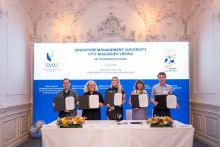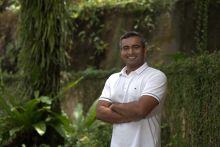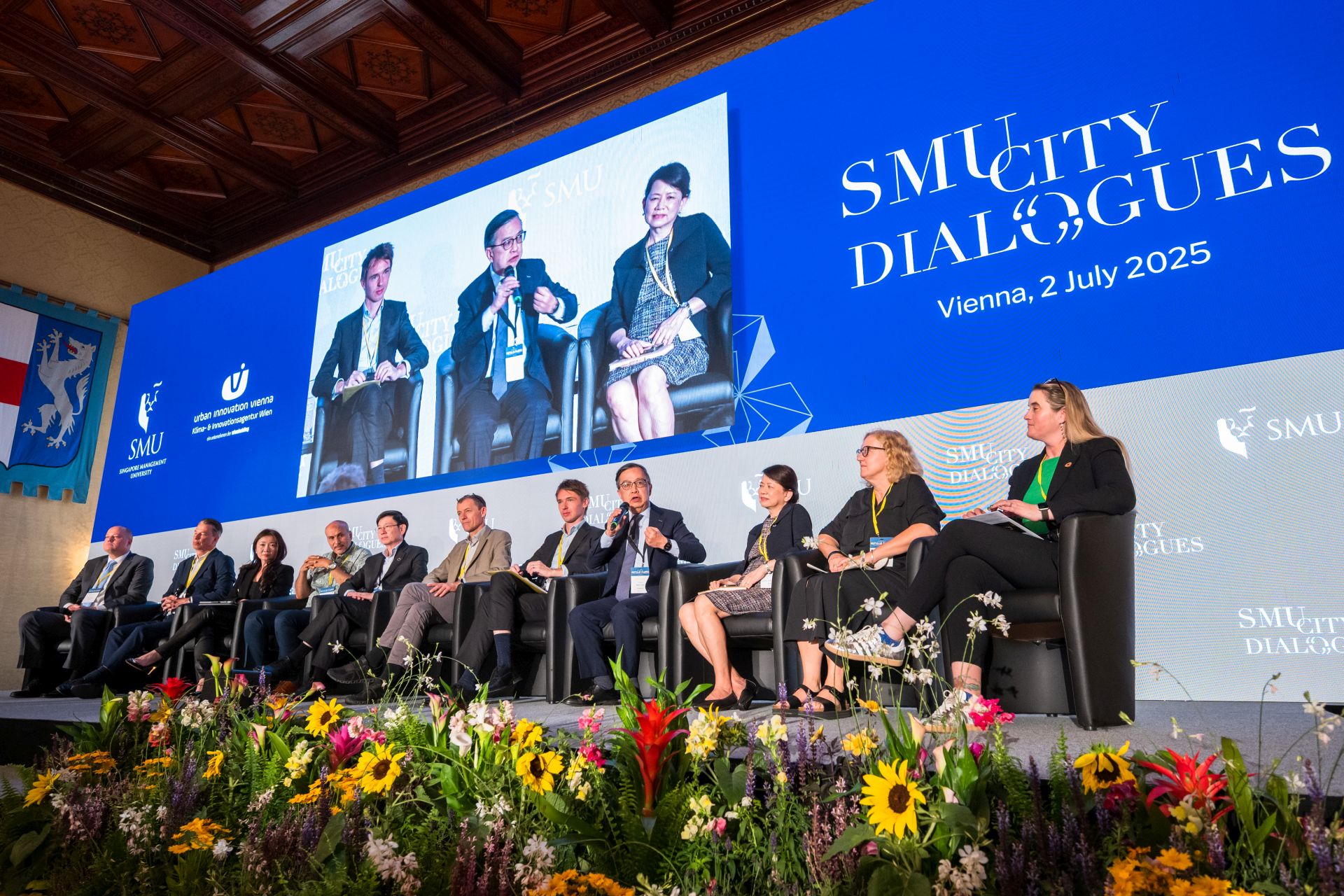
The fourth SMU City Dialogues convened at Vienna City Hall on 2 July 2025, bringing together dozens of academics, policymakers and industry leaders to confront a simple but urgent question: What is the value of urban resilience?
Organised by SMU in partnership with Urban Innovation Vienna, the event drew over 100 participants from more than 20 countries and touched on the heart of how cities endure and evolve.
It was held alongside the Mayors Forum of the World Cities Summit 2025. Unlike typical city-centric conferences, the focus here wasn’t technology, infrastructure, or capital flows. Instead, one theme surfaced again and again: urban resilience begins with trust — and must be grounded in equity and context. Crucially, SMU City Dialogues wasn’t just talk; the focus was on translating insights into actionable outcomes. It also provided a platform for SMU to bring an Asian perspective to issues that matter deeply to cities everywhere.
The event opened with a welcome address by SMU Provost Professor Alan Chan, followed by remarks from Mr Melvyn Ong, Permanent Secretary (Development) at the Ministry of National Development, Republic of Singapore. The keynote address was delivered by Mr Jürgen Czernohorszky, Executive City Councillor for Climate, Environment, Democracy and Personnel of the City of Vienna.
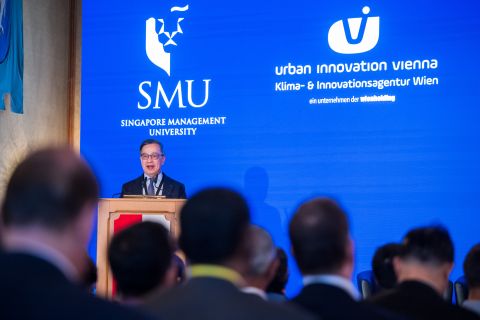
Professor Chan, in his opening address, said that resilience is not one-dimensional. It is a layered practice that spans the economic, social, and technological. “No city can navigate these complexities alone. Building resilient, regenerative, and restorative cities demand a shared endeavour. It requires what some have described as a ‘triple helix’ — where government, academia, and industry collaborate not only on technical innovation but also on the social and cultural fabric of our communities,” he added.
In his keynote speech, Mr Czernohorszky said that Vienna is enthusiastic about its mission to maintain a high quality of living in the generations to come. He remarked, “Resilient cities are not only robust, they are kind, they are inclusive, and they are fair. This is what Vienna stands for. Strong cities protect what matters most – the people.”
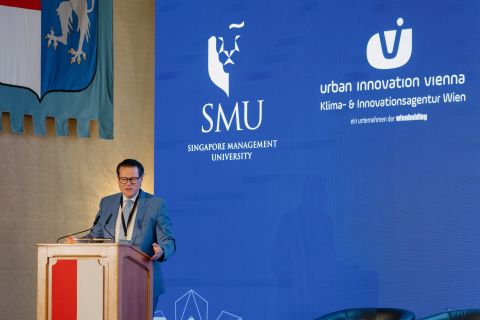
Mr Jürgen Czernohorszky delivering the keynote address at SMU City Dialogues Vienna.
This message was also echoed in Mr Ong’s address. “Both Singapore and Vienna have been recognised globally for our high standards of liveability, investing deeply in public infrastructure and cultural assets, and demonstrating that good governance and long-term planning are the cornerstones of urban resilience,” he said.
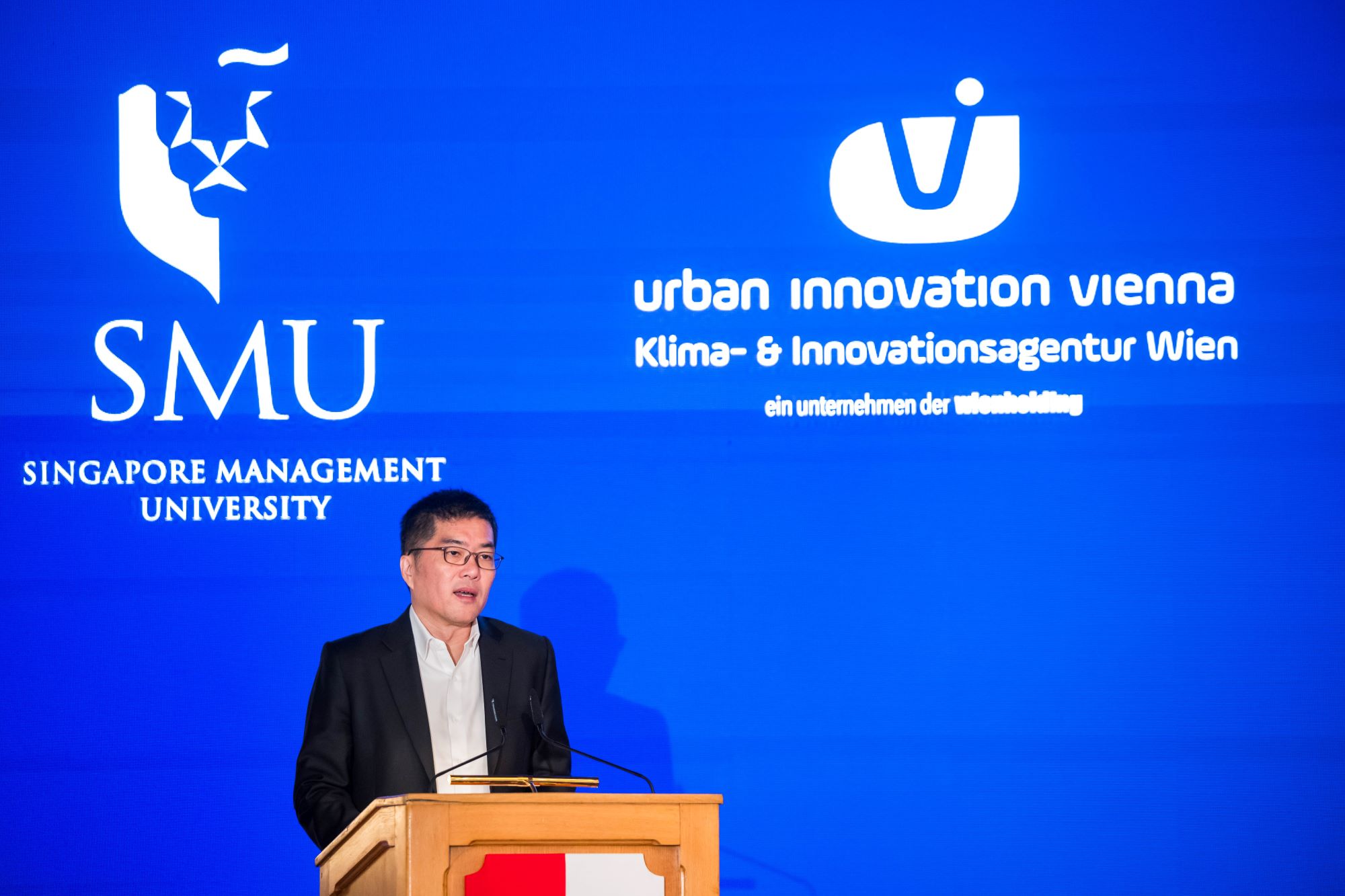
Mr Melvyn Ong addressing guests at SMU City Dialogues Vienna.
The pillars of urban resilience
In three parallel dialogue tracks — finance and public–private partnerships; social equity and environmental sustainability; innovation and technology — participants wrestled with the real-world trade-offs, each group reaffirming that genuine resilience depends on inclusive development and credible governance.
SMU Professor of Urban Climate Winston Chow, Co-chair of the IPCC Working Group II, said: “Resilience isn’t just about surviving, it’s about thriving. We need to align financial systems with social goals, build trust through good governance, and empower communities to shape their own future”
He cautioned that public–private partnerships may deliver short-term gains — but without due diligence, they risk expanding inequality or undermining public trust.
While innovation and technology featured as a core theme, much of the discussion circled back to human realities. SMU Professor of Geography Orlando Woods, Director of SMU’s Urban Institute, argued that digital tools are no substitute for social understanding.
“It’s not about being a smart city. It’s about being a smart-enough city. Smart enough relative to the context, the specific problem we are trying to solve with the technology that we have,” he explained.
Dr Johannes Lutter, Senior Urban Planner at Urban Innovation Vienna, outlined three key messages on how resilience can be made more socially inclusive and locally grounded. “Given our limited resources, it is essential that we take targeted action — focusing in particular on those who are most vulnerable. To do so effectively, we must have a clear understanding of who is at risk.”
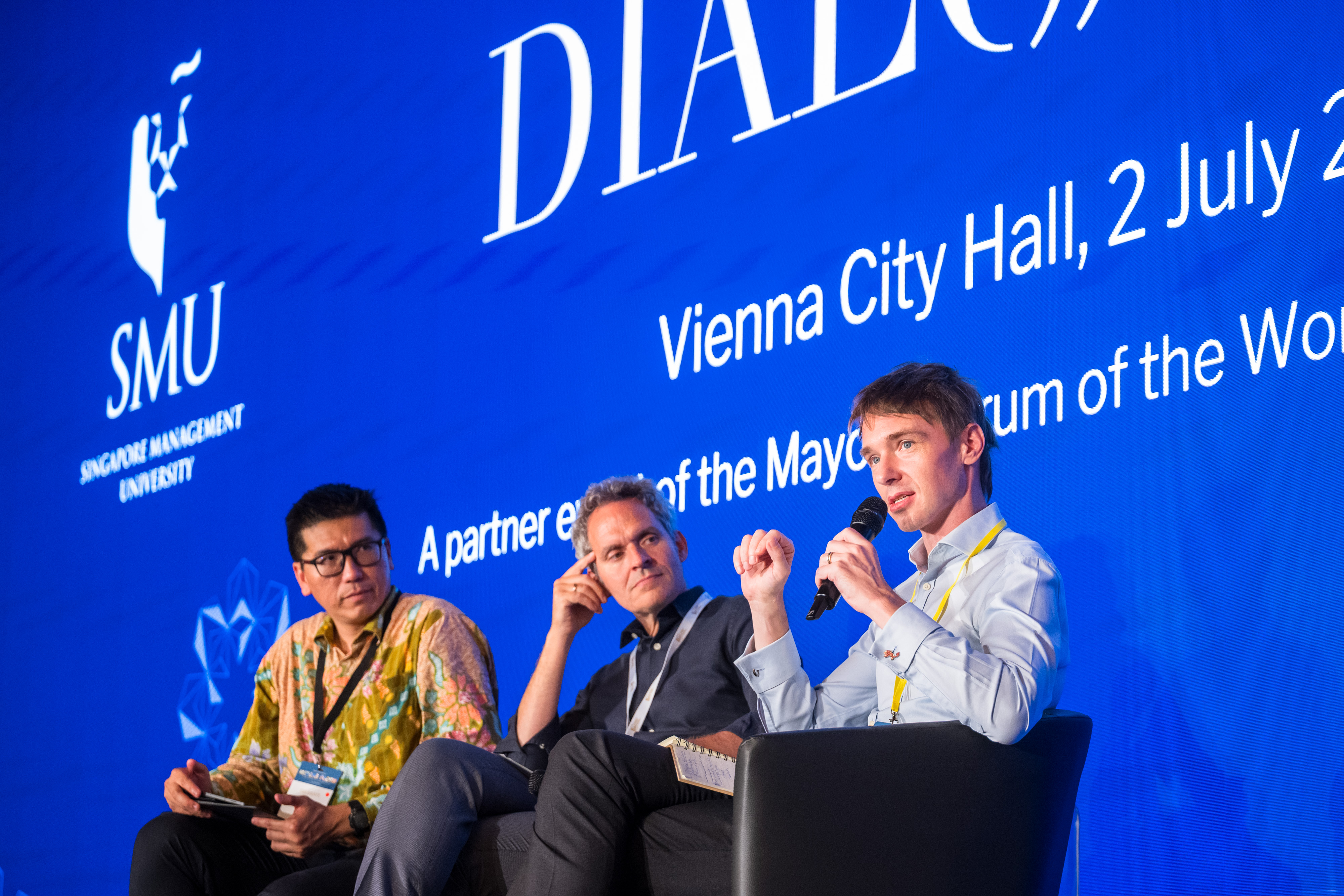
(L-R) SMU Professor Winston Chow; UIV Dr Johannes Lutter; SMU Professor Orlando Woods.
Reframing the meaning of resilience in cities
If the City Dialogues made one thing clear, it’s this: resilience isn’t found in high-tech systems or the newest master plan. Rather, it can be found in the relationships between citizens and institutions, in the trust that systems are fair, and in the clarity that strategies are designed with — not just for — the people most affected by them.
The fourth SMU City Dialogues didn’t deliver grand solutions. But it did something just as powerful: it reframed the question from“How do we future-proof our cities?” into“How do we ensure they are fair, trusted, and fit for purpose in a world that refuses to stand still?”
The event was indeed a fitting tribute to mark SMU’s 25th anniversary. In commending the University, Mr Ong remarked, “(This) milestone reflects not just institutional maturity, but a growing leadership role in shaping conversations on urban futures. I’m heartened to note that over the past 25 years, SMU has steadily expanded its impact – in education, partnerships and in research.”

